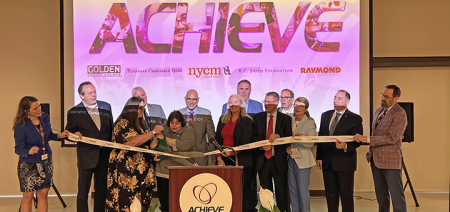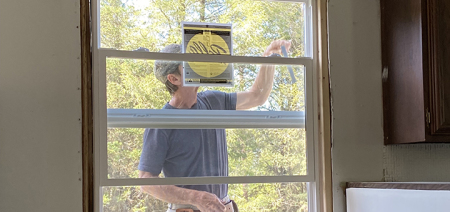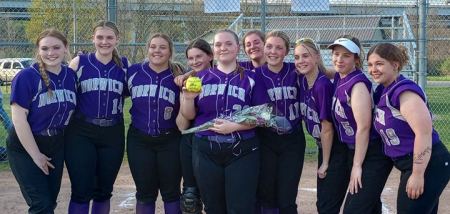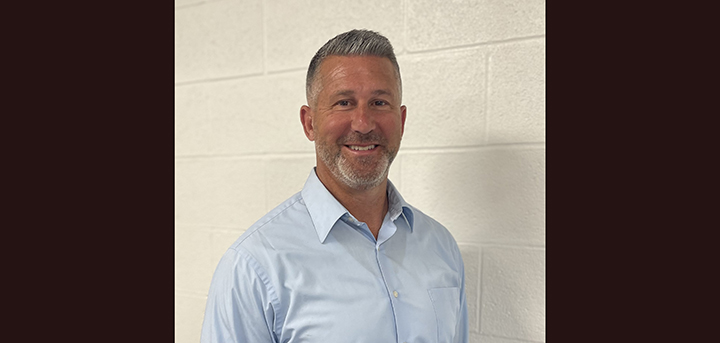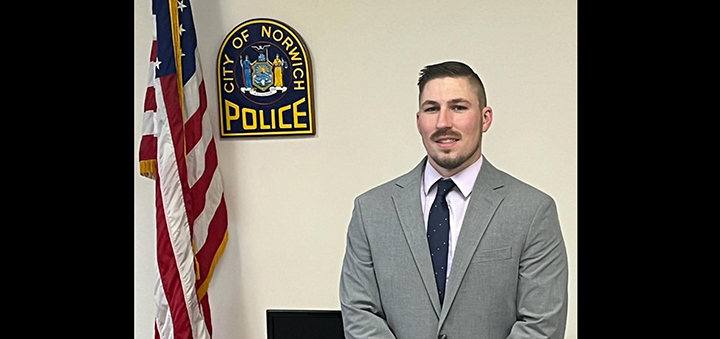What Now: $6 Million City Of Norwich Water Filter Plant Left Unused
Published:
August 22nd, 2023
By:
Lilli Iannella
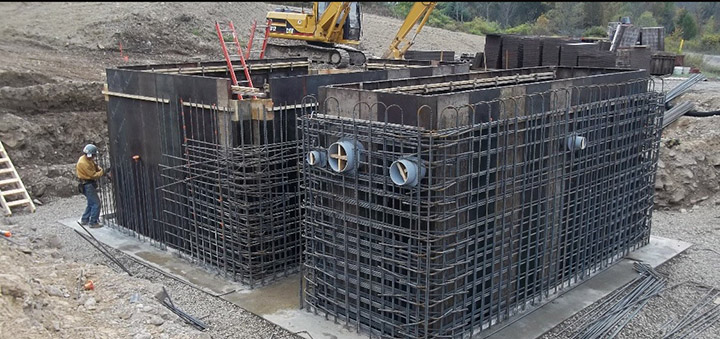 The City of Norwich surface water treatment plant under construction in October 2017. (Photo from the Delaware Engineering website)
The City of Norwich surface water treatment plant under construction in October 2017. (Photo from the Delaware Engineering website)
NORWICH– The City of Norwich’s new surface water filter treatment plant has operated for drinking water purposes for just a single month since its completion in 2018.
Public officials said the city must wait for the plant’s permit to be modified in order to filter drinking water, but they also worry about potential costs that might incur if modification fails.
The $6 million plant has faced programming issues, such as aluminum exceedances in the filter backwash, which have caused the city to shut down the plant from serving community members.
The filter plant being offline hasn’t impacted how the community gets its drinking water since the primary source is through water wells and not the filter system, said Department of Public Works (DPW) Superintendent Edward Pepe.
When the filter plant is online, Pepe said the city usually operates such that 80% of drinking water comes from the wells and 20% from the filter plant. The new plant was online during January 2021, he said.
Pepe said the plant was always intended for backup and supplemental use to existing groundwater supply wells. The old filter plant also served as backup to the wells, he said.
To obtain drinking water, City of Norwich Mayor Brian Doliver said the city has worked on two systems— through the wells and filter plant— but he acknowledged the high cost of the new filter plant and its functionality.
“We have plenty of wells in the city– we have more water than we need, but this is another source. It's kind of a backup idea,” Doliver said. “And of course, because of the filtration plant being so expensive, we really need to make this work right. So we're hoping sooner than later we'll be able to get that.”
Water from the wells is considered groundwater, which is already filtered through earth and ground soil and doesn’t need additional filtering, Pepe said, while surface water must be filtered and treated to drink.
City of Norwich former Mayor Christine Carnrike, who served two terms from 2016 to 2019, questioned whether or not the city needed to build the filter system.
“Here we are in 2023, and we have a facility that incurred over $6 million in debt service for the City of Norwich and its taxpayers, and it’s still not operational,” Carnrike said. “So I go back to– do we really need this thing? Because we obviously have water without this filter plant being fully operational.”
Those who use the drinking water provided by the City of Norwich are charged a fee for their water, which has helped the city pay off the loan, Doliver said. The city’s most recent Annual Water Quality Report in 2022 lists the minimum water bill charge per household as about $67 per quarter during the year. The amount rose about $5 in 2016 and has stayed the same since, according to water reports.
Doliver said he wasn’t sure how much the drinking water annual fee is, but knowing that there is one represents a motivation to get the system running.
“The people that use the water, obviously, they have a fee for their water, and so by that, we are able to pay the loans. And that's more of a reason why to get it back online,” Doliver said.
Doliver and Pepe said once the city can get the permit modified with the New York State Department of Environmental Conservation (NYSDEC), they can have the plant operate online to filter drinking water served to the community. The city has been trying to modify the permit since the beginning of 2021, according to water commission meeting minutes.
Almost three years later, Carnrike said she doesn’t think the city has prioritized getting the updated permit.
“It doesn’t seem to be a priority, and to me, a $6 million facility should be operational after all this time,” Carnrike said.
Doliver said he hopes the permit can be modified as soon as possible so the city can start using the plant.
“We've been working on this process for a couple of years,” Doliver said. “We're hoping we can get this kind of over the goal line here soon so we can start using the plant.”
Pepe said the city has devised a sampling plan in an attempt to prove to the NYSDEC that the filter plant’s wastewater discharge has no environmental impact on the Ransford Creek drainage area.
He said aluminum exceedances have been measured in the wastewater ”backwash” of the filter plant and not the “finished water,” which is the drinking water served to the community. He said he plans to meet with the NYSDEC soon to discuss the city’s plan.
“If I were concerned that we had a problem with the aluminum, then that'd be a different story,” Pepe said. “But our flow is so small compared to the creek, and I think we'll be okay.”
Denis Slattery, an assistant public information officer at the NYSDEC in Albany, shared the city’s 2020 notice of violation, which revealed six aluminum exceedances between November 2019 and June 2020, with the highest one reaching over seven times the enforceable limit in November.
“DEC subjects every application to a rigorous review of all applicable federal and state standards to ensure the agency’s decision is protective of public health and the environment, upholds environmental justice and fairness, and meets applicable standards,” Slattery said in an emailed statement.
If the city cannot successfully modify their permit with the NYSDEC, they would have to apply treatment or install updates to the system, Pepe said.
Doliver said it would be “extremely costly” if the city had to alter the plant to fit the NYSDEC standards. Carnrike also said she worries about what potential costs might amount to be.
When the plant was built, design specifications did not include features to reduce aluminum, because an aluminum permit was never discussed during the design phase of the project, according to City of Norwich Water Commission meeting minutes in February 2021.
In the meeting, Pepe said the aluminum limit “was only added at the last minute because the DEC thought the City would be adding an aluminum settling agent.” Because of this, Pepe said the city didn’t predict issues with aluminum exceedances.
“It was not something we foresaw, because aluminum wasn’t discussed during design phase. It was only added to our permit after the facility was built,” Pepe said.
Carnrike expressed how potential issues with city projects, like that of the filter plant’s, could be prevented with all-encompassing plans that start from design to finish.
“The city– the mayor, the council, the department heads– should really be held accountable, that we make sure we do projects that are well thought out from the beginning, that are planned, that are engineered properly from the get-go,” Carnrike said.
The idea of the filter plant came into fruition before current leadership took over, Doliver said. According to water commission meeting minutes, conceptual design for the project started in 2007. Doliver took office in January 2021, and Pepe has been the head of DPW since August 2018.
In December 2012, the Common Council approved moving forward with the “Water Filtration Project,” which was introduced as being established to replace the existing 119-year-old drinking water filtration facilities on Rexford Street.
Pepe said the New York State Department of Health also pushed the city to get a new water filter treatment plant since the old one was obsolete.
According to their website, Delaware Engineering, the company that designed and constructed the plant, said the plant was installed to comply with new surface-water treatment standards.
The city remains focused on working with the NYSDEC to modify their permit and lists the modification as the first step in getting the plant to serve the community, both Doliver and Pepe said.
“It’s not uncommon for the DEC to come in and say that okay, we understand that you naturally have a little bit more aluminum than the DEC permits, that they are willing to work with us on that,” Doliver said. “The best thing to do is just kind of wait for that.”
Carnrike remains skeptical about the plant’s functionality, whether the permit is modified or the city has to pay additional updates.
“How much do we have to put into it to make it operational and have the staff who can actually run it and run it well?”
Author: Lilli Iannella - More From This Author
Comments
